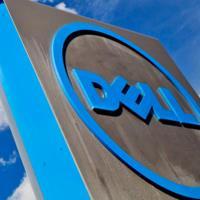
by Jason Clement for Daves Computer Tips
Is Windows 8 a ‘Catastrophe’ for Everyone?
Windows 8 a new beginning…
By now you are probably aware that Microsoft has released Windows 8, the latest version of the ubiquitous Windows family of Operating Systems. Windows 8 boasts many cool new features, including the ability to be loaded across a new range of hardware including tablets, and featuring touch-screen capabilities. I believe no one can deny the ‘coolness’ of the newest Windows family member. But were you aware that not everything is sunshine and roses behind the scenes?
I’m not going to fool you. This article will be a little long. You’ll laugh. You’ll cry. And in the end, you will understand what the fuss is all about.
A Developing Row
Enter Gabe Newell, (pictured above left) co-founder of Valve (developers of the digital distribution platform Steam), and former developer of Windows itself at Microsoft. On July 24th, at an annual videogame conference in Seattle, Gabe Newell had this to say about Windows 8 in a discussion about developing games for the Linux operating system:
“I think Windows 8 is a catastrophe for everyone in the PC space.”
Wait. What? Why would he say that? It was even re-iterated in Forbes.
This was quickly echoed by other developers. Blizzard Entertainment’s Executive Vice President of Game Design for Diablo III, Rob Pardo, tweeted the following:
Rob Pardo @Rob_Pardo
nice interview with Gabe Newell – “I think Windows 8 is a catastrophe for everyone in the PC space* – not awesome for Blizzard either
While Blizzard Entertainment has since confirmed there will be a release of the Blizzard products onto the Windows 8 platform, the developers blasting of Windows 8 still continues, and some developers are even refusing to have their applications certified by Microsoft.
Since then, more software developers have been more or less echoing this sentiment. Even Minecraft creator Markus Persson got in on the action when he tweeted the following:
Markus Persson @notch
Got an email from microsoft, wanting to help “certify” minecraft for win 8. I told them to stop trying to ruin the pc as an open platform.
Markus Persson @notch
I’d rather have minecraft not run on win 8 at all than to play along. Maybe we can convince a few people not to switch to win 8 that way..
What’s all the clamor about?
The launch of Windows 8 comes with the launch of the Microsoft Windows Store and integration with X-Box Music service. Microsoft is following the example of Apple’s success with the Apple App Store; and raising the bar by making a Microsoft Windows Store accessible across all its platforms, including X-Box, Windows Phone, Windows Desktops. So you can order your X-Box game on your phone, start up the X-Box, and it’s already there. You can order that new music on your X-Box, and it’s already on your computer or tablet or phone. Pretty cool, right?
There is nothing immoral or illegal about this activity. In fact, Microsoft is considerably justified in pursuing a strategy which has been so successful for Apple. But this new strategy pushes further into our electronic world and puts the squeeze not just on the consumer, but also on both equipment manufacturers and software developers. All applications sold through the Windows Store will give Microsoft the same 30% cut that Apple derives from apps sold on the App Store. Apple is following suit by extending its App Store onto their desktops.
When software developers are developing for one of the 3 primary platforms (Windows, Apple OS, Linux), they rely on the developer of the operating system to put out a Software Development Kit (SDK). The new Windows 8 Software Development Kit provides coding that is streamlined for using the Windows Store to market applications. Again, not surprising.
Apple has been very successful in controlling what apps are available in the Apple Store. If you want your App listed, then play by Apple’s rules when it comes to the content of the App, and give them 30% off the top. Apple has always been a closed source, proprietary system. They control the hardware AND the software. The benefits to a closed system is that the software works. Users of Apple products generally experience fewer errors and less downtime. With that comes less third-party innovation. Most of the major breakthroughs on the Apple platform have been developed solely, or in conjunction with Apple themselves.
Microsoft, on the other hand, took an open platform approach. Granted, Windows itself has always been closed. But development of software for the platform was left open, and drivers for the hardware was also open, allowing third party developers of both hardware and software to innovate to the sky, with only the limitations of the Windows platform itself. In addition, anything you developed for the Windows platform was your own. The profits…were your own. Allowing an open development platform had its drawbacks, and poorly coded applications and drivers resulted in errors. This is where the free market takes hold, and those companies who consistently wrote poorly coded software were *generally* driven out of business, and those who coded well were able to compete in the global software marketplace. Well…so long as you weren’t coding some kind of software which directly competed with Microsoft products (more on that later, as well).
Now, if you want your App or Application listed in the Microsoft Windows Store, similar rules to the Apple paradigm apply. This gives Microsoft unprecedented control of not just of Apps, designed primarily for Windows phones and tablets, but also of Applications and Games. The birth of the Microsoft Windows Store is a means for Microsoft to tighten the reigns on software developers, as well as skimming profits off the top. Anything Microsoft doesn’t agree with can be removed from the Microsoft Windows Store. The benefits to this are the same as the benefits with Apple, in that tighter control will generally mean better working applications. The problem with closing the platform is that it stifles innovation and competition.
With the launch of the Microsoft Windows Store, Microsoft has taken the first step in tightening the reins. In truth, there is not a lot wrong here…yet. Software developers can opt not to use the Microsoft Windows Store, and instead continue pursuing their own software distribution methods. The fear is that the second step, where Microsoft further tightens the reins and begins limiting what can be installed outside of the store, or demanding more criteria in alignment with Microsoft’s designs, will be all too easy a step to take, with little recourse for the developers. Microsoft is treading new ground here, and seeing how far they can go. There are already negotiations going on with some governments to ensure that Microsoft will not be stifling competition.
A Little History…Article Continued Here.
This excerpt is shared with permission from davescomputertips.com.




